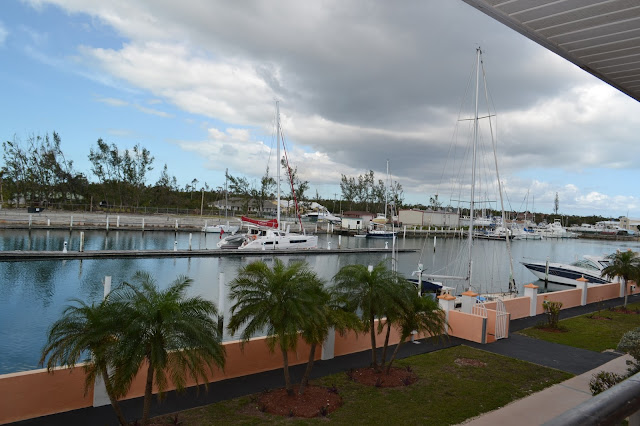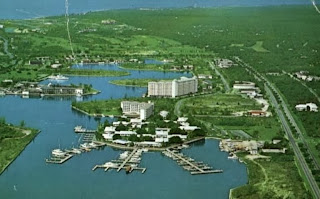Is it time to let go of the Port Authority?
Sixty years after the signing of the Hawksbill Creek Agreement, the original signatories are dead.
The man with the vision for Freeport was the first to go and apparently his vision with him.
It was a vision for a thriving community based on the Hawksbill Creek and the formation of a harbour. As was the rush for gold there was a rush to this island during 1950s to 70s of people looking for another home that offered an ability to make a new life for their families.
This was short lived and many had to return to homes they were hoping to forget or other places where there communities were more welcoming.
During the first ten years of the Hawksbill Creek Agreement, the Government of The Bahamas kept a keen eye on what the Grand Bahama Port Authority was doing and made several demands in writing to steer the ship not only for a better Freeport, but a better Bahamas.
After 1965, there seems to be a lack to Government involvement in the public arena until 1993 when a new amendment was agreed to and included some interesting demands from both sides of the table.
In a day where e-commerce is in great demand especially for ease of business in a country, that question is, is it time to get rid of the Hawksbill Creek Agreement?
Since the hurricanes of 1999, 2004, and 2005 as well as such taxes as NIB and VAT, the closure of several hotels and direction of hiring in the new establishments, the economy for the average Bahamian has dwindled and making ends meet seem near impossible at times.
During a brain storming session with young entrepreneurs recently it was noted that most of the smaller businesses at present are online which means they are not having to get a Port licence that could cost around $1500 (one of the cheapest licenses), that can only be gotten if you have a physical space to operate that would incur fees ranging from $350 - $3000, $500 - $1500 deposit for power, incidentals for inspections of the premises, etc.
The only real reason to have a business licence is to get a bank account in the business name to operate at a certain level. But entrepreneurs are bypassing all that at present to make a living and some are doing well, others are getting by.
If there were no Port Authority how would Grand Bahama thrive?
The first thing to be done away with would be zones unless the Government insists on there being zones and are willing to police this rule.
The cost of a Government business license is about $100 - $150 so there will be many businesses able to operate from homes with a fraction of the present fees. No need to add power, water, garbage or anything else to their overhead.
I don't feel that all shop spaces would be without tenants but the ability to own and operate a space would be that much less to get started if your license is not killing you.
It would mean that the Government of The Bahamas would once again be responsible for our infrastructure without a "double/triple" government system, investors may find it easier to do business here.
The ports of entry may be bought back by the Government... that seems to be a gray area.... and real estate taxes may take effect for homes over a certain amount.
The Government will have to take on more responsibilities for the island but we already have a government for that.
Is it time..... 99 years are not up yet, but the supervisors who were given the business to run were left to themselves without management and constant supervision. They were left to run the business without accountability (in writing) so....
As the times have progressed and the world is not the same as it was yesterday would this mean we would be able to catch up with the rest of the world and make big strides?
Or could we see a new vision coming from the Port that will turn Grand Bahama and The Bahamas around?
What's next Freeport?
The man with the vision for Freeport was the first to go and apparently his vision with him.
It was a vision for a thriving community based on the Hawksbill Creek and the formation of a harbour. As was the rush for gold there was a rush to this island during 1950s to 70s of people looking for another home that offered an ability to make a new life for their families.
This was short lived and many had to return to homes they were hoping to forget or other places where there communities were more welcoming.
During the first ten years of the Hawksbill Creek Agreement, the Government of The Bahamas kept a keen eye on what the Grand Bahama Port Authority was doing and made several demands in writing to steer the ship not only for a better Freeport, but a better Bahamas.
After 1965, there seems to be a lack to Government involvement in the public arena until 1993 when a new amendment was agreed to and included some interesting demands from both sides of the table.
In a day where e-commerce is in great demand especially for ease of business in a country, that question is, is it time to get rid of the Hawksbill Creek Agreement?
Since the hurricanes of 1999, 2004, and 2005 as well as such taxes as NIB and VAT, the closure of several hotels and direction of hiring in the new establishments, the economy for the average Bahamian has dwindled and making ends meet seem near impossible at times.
During a brain storming session with young entrepreneurs recently it was noted that most of the smaller businesses at present are online which means they are not having to get a Port licence that could cost around $1500 (one of the cheapest licenses), that can only be gotten if you have a physical space to operate that would incur fees ranging from $350 - $3000, $500 - $1500 deposit for power, incidentals for inspections of the premises, etc.
The only real reason to have a business licence is to get a bank account in the business name to operate at a certain level. But entrepreneurs are bypassing all that at present to make a living and some are doing well, others are getting by.
If there were no Port Authority how would Grand Bahama thrive?
The first thing to be done away with would be zones unless the Government insists on there being zones and are willing to police this rule.
The cost of a Government business license is about $100 - $150 so there will be many businesses able to operate from homes with a fraction of the present fees. No need to add power, water, garbage or anything else to their overhead.
I don't feel that all shop spaces would be without tenants but the ability to own and operate a space would be that much less to get started if your license is not killing you.
It would mean that the Government of The Bahamas would once again be responsible for our infrastructure without a "double/triple" government system, investors may find it easier to do business here.
The ports of entry may be bought back by the Government... that seems to be a gray area.... and real estate taxes may take effect for homes over a certain amount.
The Government will have to take on more responsibilities for the island but we already have a government for that.
Is it time..... 99 years are not up yet, but the supervisors who were given the business to run were left to themselves without management and constant supervision. They were left to run the business without accountability (in writing) so....
As the times have progressed and the world is not the same as it was yesterday would this mean we would be able to catch up with the rest of the world and make big strides?
Or could we see a new vision coming from the Port that will turn Grand Bahama and The Bahamas around?
What's next Freeport?



Comments
Post a Comment